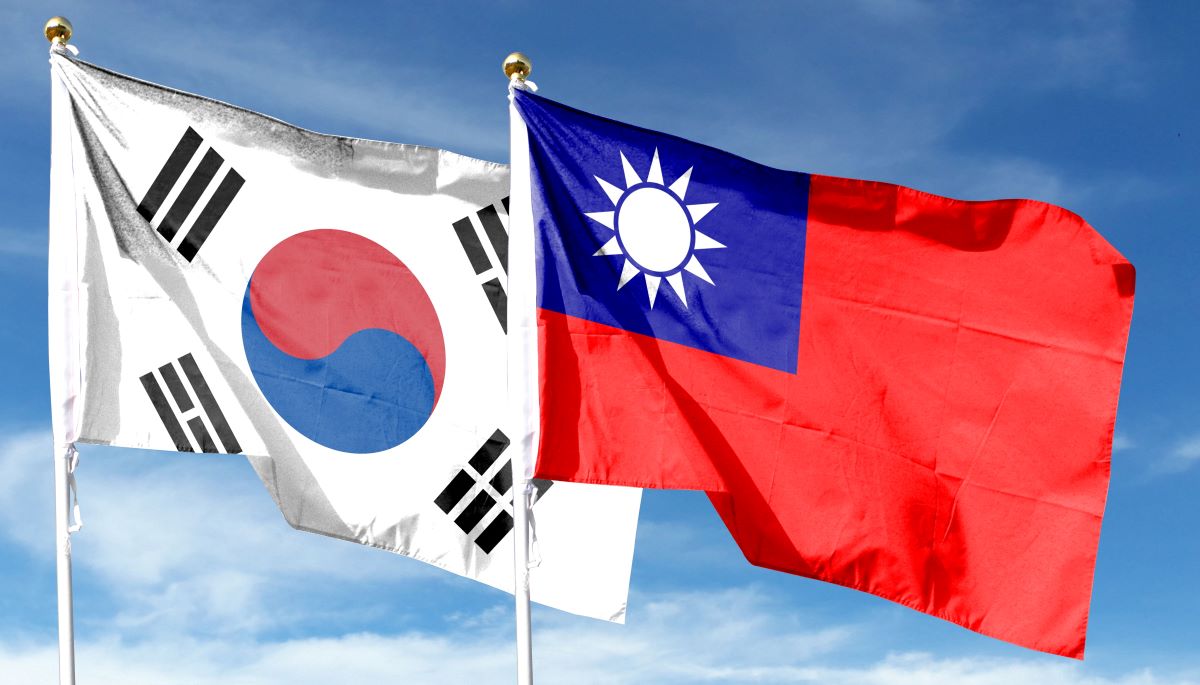2023 was a winning year for emerging markets (EM) ex-China equities as tech themes like Generative AI, Large Language Models (LLMs), Metaverse, and Internet of Things gained momentum. The MSCI Emerging Markets ex-China index climbed 12.82% from January to November of last year. The Index captures large- and mid-caps across 23 of the 24 EM countries and information technology (IT) is the biggest sector weighting.
South Korea and Taiwan make up almost 40% of the MSCI EM ex-China index. Both countries are leading producers of high-performance chips, the backbones of all advanced technologies.
Also, South Korea’s KOSPI and Taiwan’s TAIEX were among the best-performing indices in Asia in 2023.
With big tech names like Samsung Electronics or Taiwan Semiconductor Manufacturing Company (TSMC), analysts predict that both countries are set to reap major rewards from the advancements in technology in the coming years.
“Taiwan has the full industrial supply chain to support current and future AI industry trends. Taiwanese companies that manufacture key components such as thermal/power/printed circuit boards, etc. can also benefit by providing a complete component supply chain. Korean fabs that are developing the next generation High Bandwidth Memory chip will also benefit from the widespread adoption of AI,” says Eastspring Investments.
While Taiwan accounts for over 50% of the global semiconductor foundry market, South Korea’s share is 17%. TSMC is globally the largest chip foundry by revenue. ASE Technology and United Microelectronics are two other top Taiwanese semiconductor companies. Meanwhile, South Korean chip giants like Samsung Electronics, SK Hynix, and SK Square feature in the global top 100 semiconductor companies in terms of market cap.
“South Korea and Taiwan certainly punch above their weight on the global stage, thanks to their dominance in the semiconductor industry. (…) Both economies also appear set to benefit from more long-term structural drivers that increase chip demand,” says Franklin Templeton.
The global transition towards electric vehicles (EVs) also presents long-term opportunities for chipmaking companies in both countries as advanced chips play a crucial part in EVs by e.g. optimizing energy distribution and enhancing efficiency.
South Korea and Taiwan complement each other in the supply chain
While both are tech rivals, they also complement each other in the supply chain. For instance, some portion of Samsung’s flash memory modules are assembled in Taiwan, and the application processors of its smartphones are designed by Taiwanese chip designer MediaTek.
Both countries have different strengths, and their joint efforts could also result in cost reduction. While South Korea excels in memory chips, Taiwan focuses more on wafer contractors. Moreover, Taiwanese companies are more involved in new technologies like 5G, but Korean tech firms continue to witness maximum demand from the memory segment and telecom devices.
Chip market slump and political uncertainty raise concerns
As South Korea and Taiwan both are semiconductor hubs, they were impacted by the slump in the chip market. The acute chip shortage built over 2020-21 has led many firms to slash their capital expenditure by about 30% in 2023. However, the market may be poised for a turnaround.
Krane Shares reiterated, “We expect Korea and Taiwan’s growth to recover substantially in 2024 as demand for AI chips increases. Global semiconductor prices could recover by the end of this year as inventories recede.”
The Korea International Trade Association has predicted that the nation’s exports are likely to rise by 7.9% in 2024, touching $680 bn. Official data also shows that chip production in South Korea soared 42% year-on-year in November, while shipments surged 80%, marking the biggest gain since late 2002.
As for Taiwan, S&P Global believes that rising tech demand will lead to a rebound in Taiwan’s GDP growth in 2024. “We expect Taiwan’s economic growth to rebound to 3% in 2024, from 1.2% in 2023, which reflects stronger activity in the tech sector.”
However, given Taiwans dominant role in the semiconductor industry, the Cross-Strait conflict remains a threat. In his annual New Year’s Eve speech, Chinese President Xi Jinping has just reiterated his assertion that China and Taiwan “will surely be reunited”. His message comes ahead of the crucial elections in Taiwan on 13 January.
The conflict between China and Taiwan has been smouldering for more than seventy years, with Beijing seeking reunification with Taiwan – by force if necessary. An escalation could have far-reaching consequences.
The Economist Intelligence Unit (EIU) has developed a model to assess the vulnerability of various economies in Asia to a hypothetical conflict in the Taiwan Strait.
“We assess Japan, the Philippines and South Korea to be the most exposed. The devastation of regional information and communications technology production and supply-chain networks would cause disproportionate shocks for North-east and South-east Asia. We do not see any markets that would serve as a substitute for Taiwan’s critical role in semiconductor supply chains, although, in the long term, South Korea and (to a lesser extent) Japan may emerge as alternatives,” explains EIU.
However, investors should not be put off by this hypothetical scenario, says Franklin Templeton. “We think that despite the elevated risks – including geopolitical headwinds – of single-county allocations, overweighting Korean and Taiwanese equities today may benefit investor portfolios given what we believe to be moderate valuations that may be viewed as attractively priced.”


 Australia
Australia China
China India
India Indonesia
Indonesia Japan
Japan Malaysia
Malaysia Philippines
Philippines Singapore
Singapore South Korea
South Korea Taiwan
Taiwan Thailand
Thailand Vietnam
Vietnam







